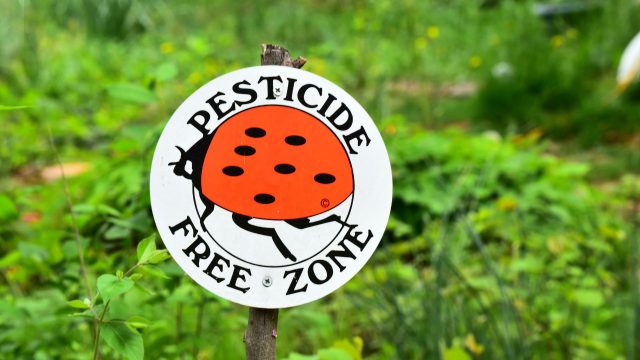21
Apr
Earth Day (April 22) Is a Time To Stop Petrochemical Pesticides with Organic in Parks and Gardens

(Beyond Pesticides, April 21, 2025)  The first Earth Day, 55 years ago, marked the beginning of a worldwide movement to protect the Earth from threats such as oil spills, raw sewage discharged into waterways, toxic chemical dumps, rampant pesticide use, the degradation of important habitats, and wildlife loss—a movement that led to passage of crucial environmental legislation, which is now at risk. While we try to ensure that the gains of the past 55 years are not lost, we can act locally to improve our local environments.Â
Does your community have a pesticide-free park managed with organic practices? Do you wish it did?
The time to take action to protect those parks and create new ones is now. With Beyond Pesticides’ supporters, including the retailer Natural Grocers in the Midwest and west, the Beyond Pesticides’ Parks for a Sustainable Future program provides in-depth training to assist community land managers in transitioning two public green spaces to organic landscape management, while aiming to provide the knowledge and skills and experience necessary to transition all public areas in a locality to these safer and sustainable practices. Through this program, Beyond Pesticides has assisted local leaders in converting the following parks and recreational areas exclusively to organic practices. With this program, Beyond Pesticides is currently working with 19 park districts in 12 states. In addition, Beyond Pesticides has worked with dozens of communities to adopt land management policies in jurisdictions of nearly every state in the country. The goal is to create models that show the viability and cost effectiveness of organic management systems that eliminate petrochemical pesticides and fertilizers that contribute to the current health crisis, biodiversity collapse, and the climate emergency.

🌳 For more information, please see the map of our program sites here. For more details on policies and practices across the country, please contact Beyond Pesticides at [email protected] or 202-543-5450.
>> Become a 📣 Parks Advocate and/or 📣 take one of the actions listed below.Â
- If your community is one of a growing number across the country that has taken action to protect its citizens and environment by adopting organic policies and practices in its public spaces, 📣 please take this opportunity to thank your community leaders. However, be aware that the pesticide industry is seeking to take those policies away from you.
Message: Thank you so much for implementing pesticide-free, organic policies and practices in our parks and public places! I love to spend time in our parks, knowing that I will not be exposed to toxic chemicals. It is great to know that toxic chemicals will not run off from our public spaces into streams and other water. It is wonderful to know that flowers in our parks can provide nectar to pollinators who face so many threats these days. In honor of Earth Day, thank you on behalf of our local community.
- If your community has not yet taken action to protect its citizens and environment by adopting organic policies and practices in its public spaces, 📣 tell them how much you want them to do so. Â
Message: When I learned about how many communities protect their citizens and local environment by transitioning to organic landcare in parks and other public places (https://bp-dc.org/tools-for-change), I asked why we can’t do the same in our own community. Pesticides used in parks, playing fields, and other public places threaten our health—especially that of our children and pets, who are closer to the ground and have greater exposure. Pesticides and chemical fertilizers run off, finding their way to streams. They also threaten pollinators, who are at risk from multiple threats. Communities no longer need to figure out how to do this alone. Beyond Pesticides’ Parks for a Sustainable Future (https://bp-dc.org/sustainable-parks-land-care-training) program aims to bridge the gaps resulting from staffing constraints and tight budgets, allowing communities to pilot the transition to organic land care on two public sites. I urge you to email their team (mailto:[email protected]) or call Beyond Pesticides at 202-543-5450 to get started! Thank you!
- Create your own pesticide-free space in your backyard. 📣 Advertise Your Commitment with a Beyond Pesticides “Pesticide Free Zone” Sign. Please share with us 📣 pictures of your organic yard or local park. 📣 Tell us why your pesticide-free parks are important to you.Â
All unattributed positions and opinions in this piece are those of Beyond Pesticides.











We need to take better care of what is left of our environment, for people, wildlife, marine life, and plant life.
April 23rd, 2025 at 8:26 pm